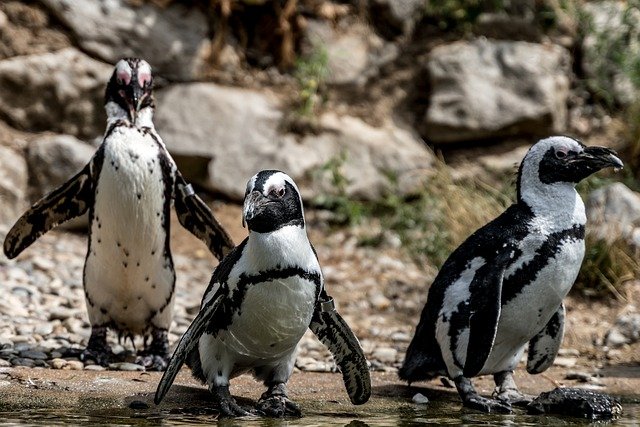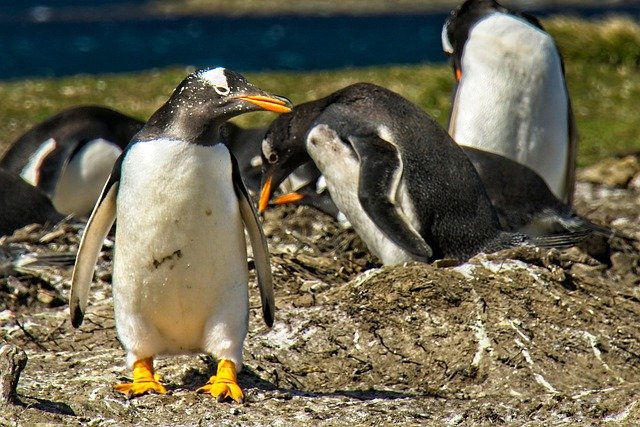**Title: "The Social Dynamics of Penguin Colonies: How Social Behavior Shapes Survival"** **

The Social Dynamics of Penguin Colonies: How Social Behavior Shapes Survival
Penguins are fascinating creatures that have captivated the hearts of many with their unique behaviors and social structures. Living in colonies that can number in the thousands, these flightless birds exhibit a range of social dynamics that play a crucial role in their survival. In this post, we will explore how social behavior influences various aspects of penguin life, from breeding to foraging.
The Importance of Colony Structure
Penguin colonies are typically structured around the needs of the group, with individuals often forming strong bonds with their neighbors. This social structure provides several benefits:
Protection from Predators: By living in large groups, penguins can better defend themselves against predators such as seals and birds of prey. The sheer number of individuals makes it more difficult for predators to target specific birds.
Temperature Regulation: In harsh Antarctic climates, penguins huddle together to conserve warmth. This behavior is not only vital for their survival but also strengthens social bonds within the colony.
Breeding and Parenting
During the breeding season, social dynamics become even more pronounced. Penguins engage in elaborate courtship displays to attract mates, often involving vocalizations and physical displays. Once paired, both parents share responsibilities in raising their young:
Cooperative Breeding: In some species, such as the Emperor Penguin, males and females take turns incubating eggs and feeding chicks. This cooperative effort increases the chances of survival for the offspring.
Social Learning: Young penguins learn vital survival skills by observing their parents and other adults in the colony. This social learning is essential for their development and integration into the group.
Foraging and Food Sharing
Foraging for food is another area where social behavior plays a key role. Penguins often hunt in groups, which enhances their efficiency and success rates:
Hunting Strategies: By coordinating their movements, penguins can herd fish into tight schools, making it easier for them to catch their prey.
Food Sharing: Adult penguins often share food with their mates and chicks, ensuring that the entire family receives adequate nourishment. This behavior is crucial for the survival of the next generation.
Communication and Social Interaction
Communication is vital in penguin colonies, where vocalizations and body language convey important information. Penguins use a variety of calls to:
Establish Territory: Males often vocalize to assert their dominance and attract females, while also signaling to other males to stay away from their nesting area.
Coordinate Group Behavior: Penguins communicate during foraging trips to signal the presence of food or to warn of potential dangers, ensuring that the group remains cohesive.
Conclusion
The social dynamics of penguin colonies are a testament to the importance of social behavior in the animal kingdom. From protecting against predators to enhancing breeding success and improving foraging efficiency, these behaviors are essential for the survival of penguins in their harsh environments. As we continue to study these remarkable birds, we gain a deeper understanding of the intricate relationships that shape their lives and the delicate balance of their ecosystems.
By appreciating the social dynamics of penguin colonies, we can better understand the complexities of animal behavior and the vital role that social structures play in the survival of species. Whether you're a seasoned researcher or simply a penguin enthusiast, there's always more to learn about these captivating creatures!
